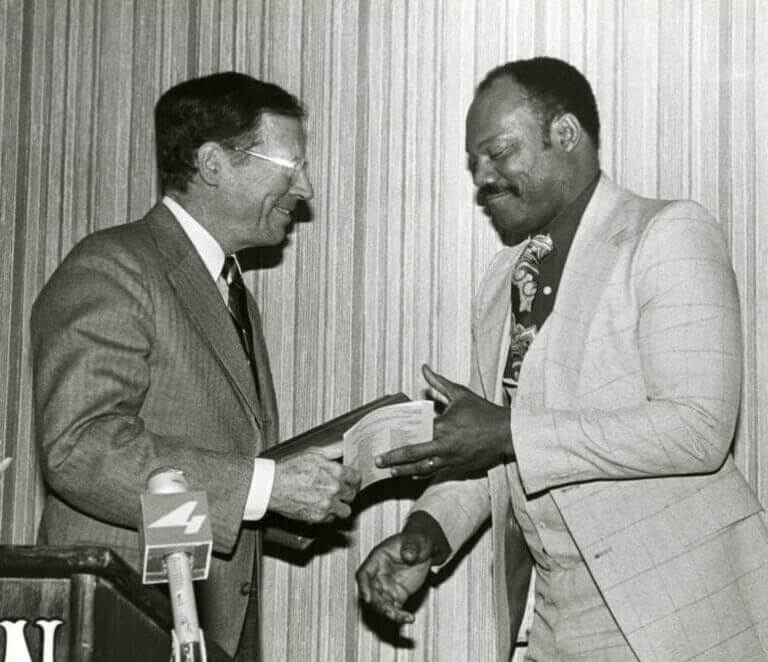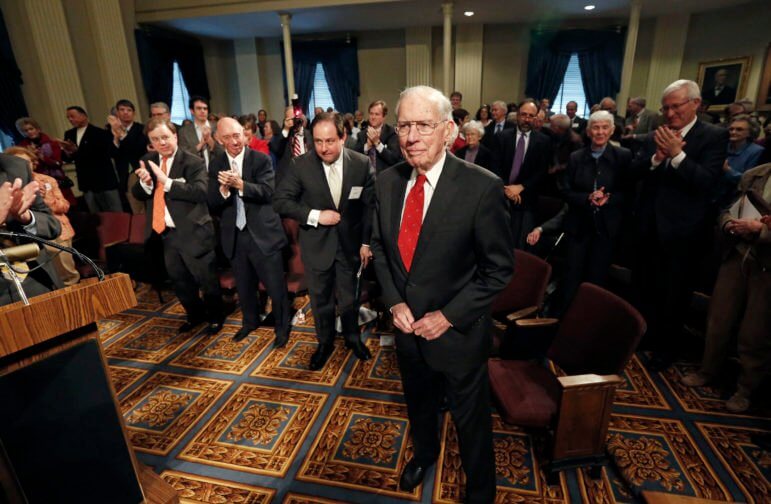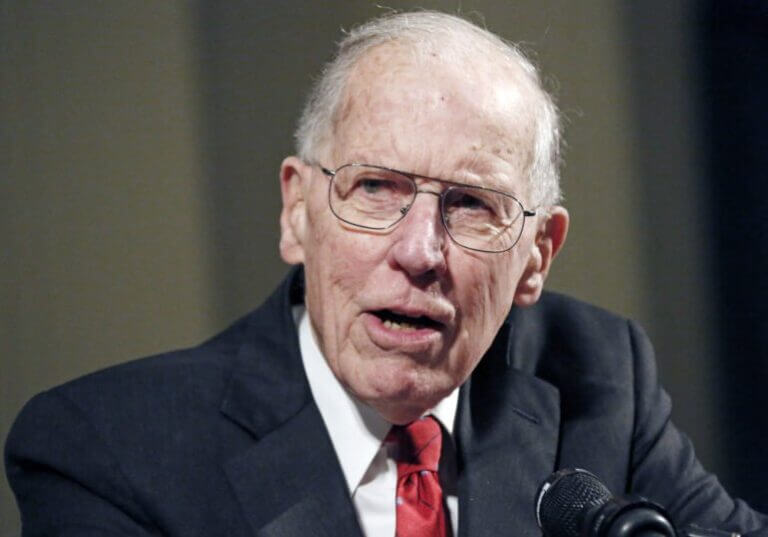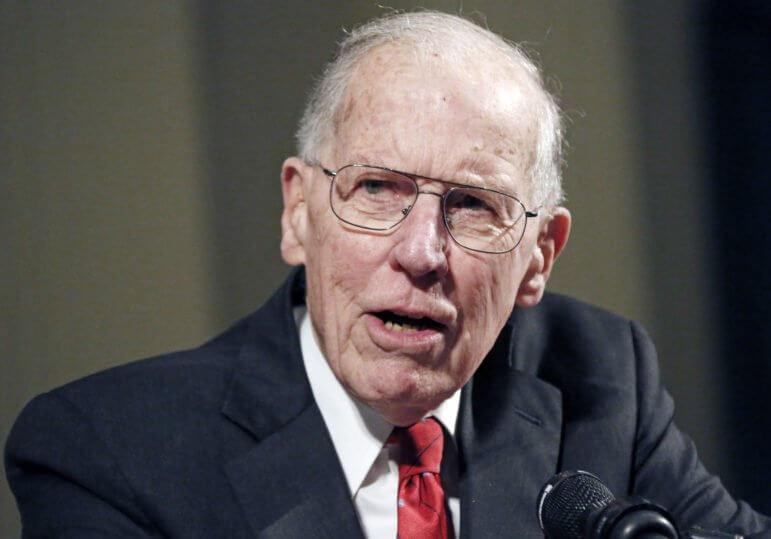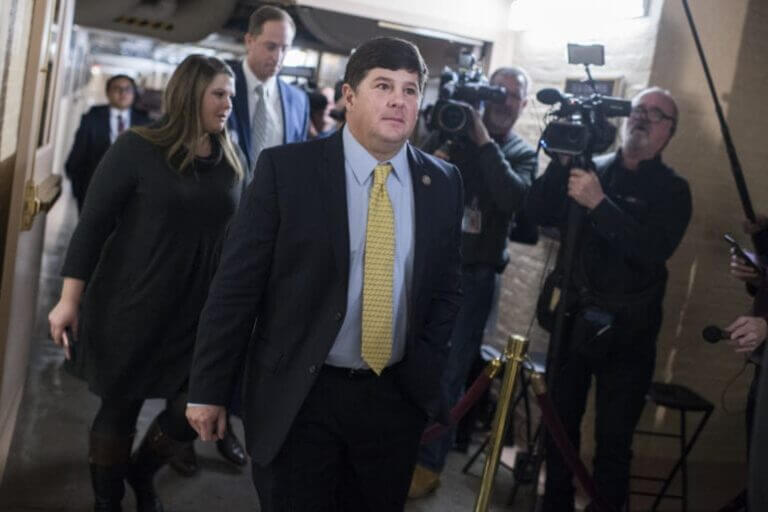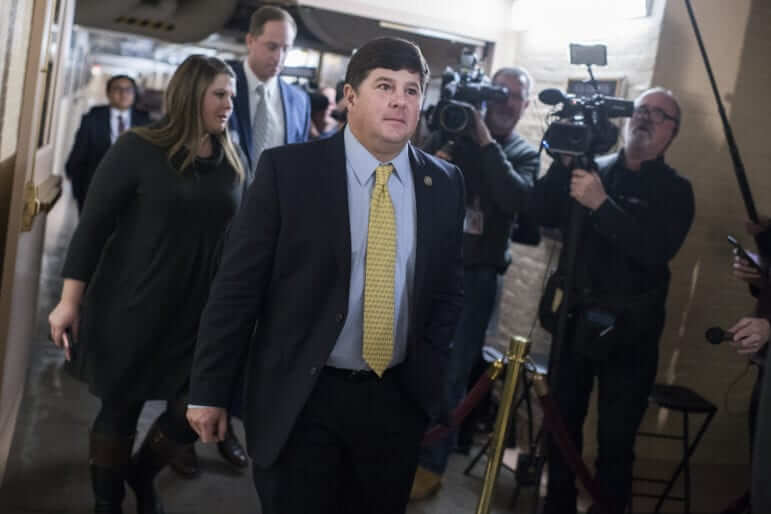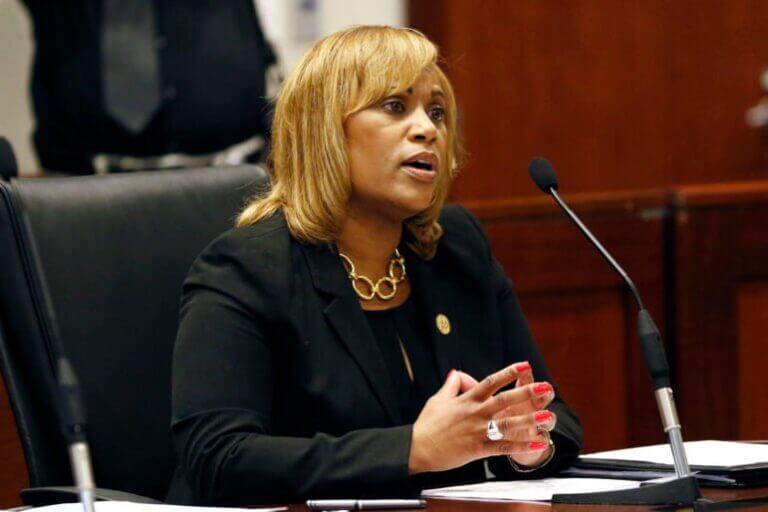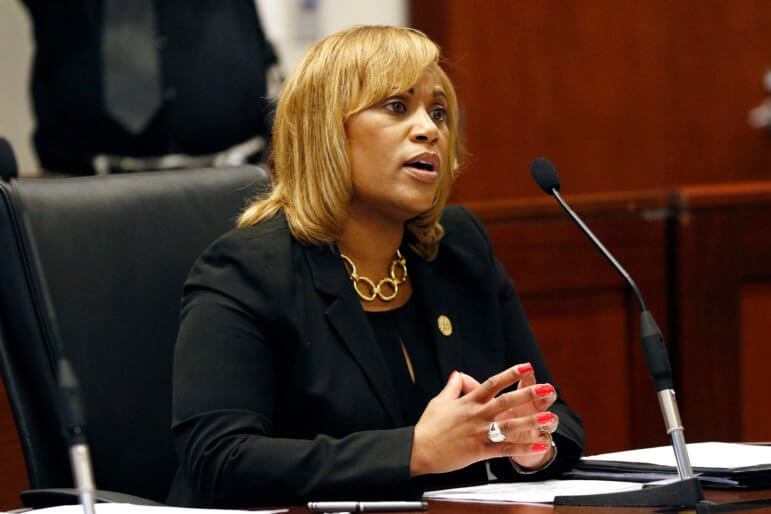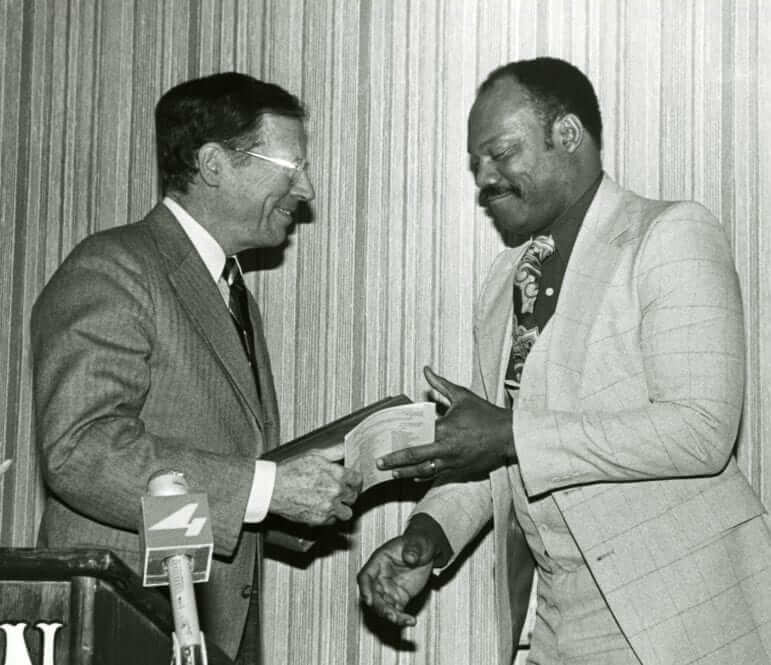
Mississippi Department of Archives and History
Then-Gov. William Winter makes a presentation to football star Willie Richardson at his induction into the Mississippi Sports Hall of Fame.
Gov. William Winter, for my money, was our greatest statesman, an intrinsically good man who cared for all Mississippians and spent a lifetime trying to make his beloved Mississippi a better place to live.
I freely admit prejudice where Gov. Winter is concerned. He was my moral compass, my hero and also my treasured friend. How often does that happen? How fortunate am I? One of my most cherished gifts in life was to know William Winter well.

Rick Cleveland
We had many shared passions: of sports, of history, of literature and, most of all, of all things Mississippi. His knowledge of our state’s political and social history was vast, of course, but he also knew as much about the state’s sports history as anyone. He was a walking, talking, deep-thinking encyclopedia of Mississippi sports.
“William really is like an encyclopedia,” Archie Manning once told me. “Every time I’m around him, I am amazed. He loves sports. He has been involved, in some way, his entire life in sports. I really cherish the time I get to spend with him, such a great man and great leader.”

1949 Ole Miss annual
William Winter as a student journalist at Ole Miss.
Gov. Winter grew up wanting to be a sports writer. That’s right: The man many consider our greatest governor initially wanted to make his living writing sports. He grew up outside Grenada, reading the great Walter Stewart’s sports columns and the Major League Baseball box scores in The Commercial Appealof Memphis.
“I really wanted to be Walter Stewart,” Winter said. “He was my model. He wrote elegantly and often with slap-your-leg humor.”
Six years ago, in the fall of 2014, a national sports news organization asked me to write a historical essay about the Ole Miss-Mississippi State football series. At the time, both teams were undefeated and ranked in the top five in the national polls. It looked as if the Egg Bowl might have national championship implications. Naturally, in my research, I called Gov. Winter first — a wise decision. The truth is he could have written the piece himself, from memory, with no need for record books or Google.
I remember asking him about the 1941 Egg Bowl, still the only one ever played with the SEC Championship hanging in the balance. If State won, State won the SEC Championship. If Ole Miss won, Ole Miss won the SEC Championship. Winter, who covered the game as a student journalist at Ole Miss, remembered everything: the weather, the 6-0 score and all the meaningful plays, including State’s winning touchdown and an apparent Ole Miss touchdown that was called back when officials ruled the Rebel runner had stepped out of bounds. It had been 72 years. (Gov. Winter wasn’t so sure the Ole Miss guy stepped out of bounds but admitted he was prejudiced.)
I told Gov. Winter his memory amazed me. Said he, and I will never forget this: “Well, you have to remember it was the most important thing in my life at the time.”
On another occasion, he told me about the first college football game he ever attended: Arkansas versus Mississippi State, in Memphis in 1939. Visiting relatives in Memphis, he ventured alone to the game at old Crump Stadium, walking part of the way, riding a street car and buying a ticket outside the gate. He was 16.
“And who won?” I asked him.
“Oh, the Maroons won, nineteen to nothing,” he answered. “That was a really great State team.”
Gov. Winter was sports editor and then editor of The Mississippian, now The Daily Mississippian, the Ole Miss student newspaper. As was the case with most college students at the time, he did not own a car. He often hitchhiked to and from the games he covered.
“I hitchhiked all over the South,” Gov. Winter told me. “It was mostly Ole Miss games but I remember hitchhiking to Tuscaloosa to watch State play Alabama.”
He told me about hitching a ride on a cottonseed truck to Memphis in 1942 for an Ole Miss-Georgia game, featuring remarkable quarterbacks Charlie Conerly and Frank Sinkwich. “There was a group of us that got on that truck on Highway 6,” Winter recalled. “When we got to Memphis, we couldn’t get all the cotton lint off our clothes.”
Gov. Winter remembered the score, if ruefully: Georgia, 38-13.

Mississippi Department of Archives and History
Gov. William Winter with baseball great Mickey Mantle at the governors mansion. )Date uncertain.)
Gov. Winter was a huge supporter of the Mississippi Sports Hall of Fame and Museum, both financially and otherwise. In my four-plus years as the director, I could always count on him for generous support. He greatly appreciated Mississippi’s remarkable sports history and the people who made it. Old-timers will remember that he often emceed the Hall of Fame’s annual induction banquet during the 1960s and 70s. He also chaired the selection process for years and championed the cause of including African Americans, both for induction and for being part of the committee who chooses the annual inductees.
In 2016, Gov. Winter and I rode together to Cleveland to watch one of his heroes, Boo Ferriss, present the C Spire Ferriss Trophy to then-freshman Mississippi State standout Jake Mangum. I got a history lesson going to and from. We talked about the Mangum family. He remembered big John Mangum, Jake’s grandfather, from his days as splendid defensive tackle at Southern Miss. He remembered Jake’s dad, little John, and uncle, Kris, from their days at Alabama and Ole Miss, respectively. But, mostly, he remembered Boo Ferriss ever so fondly.
In 1942, Winter covered Boo Ferriss’s last pitching performance at Mississippi State, a victory over Ole Miss in Oxford. Seventy-four years later, he talked about it as if it had happened the day before.
“I was in awe of Boo Ferriss back then; I was sure he would be a Major League star,” Winter said. “I was an Ole Miss man but a Boo Ferriss fan. I think I probably called him Mr. Ferriss when I interviewed him.”
Can you imagine? Mr. Ferriss, who would go on to win 46 games in his first two seasons a Big Leaguer and pitch a shutout in the World Series, was 20. The future governor was 19. Oh, what I’d give for a recording of that interview.
Gov. Winter and I worked out at the same gym until the pandemic. He spent most of his time on a stationary bike, one of those you pedal with both your arms and legs. He would keep that cycle going, often quite fast, for 20 or 30 minutes, sometimes longer. For someone in his mid-90s, he remained spry and fit. He and his lovely wife Elise almost always came to the gym together and usually ended their gym time with leisurely laps around the indoor track, always hand in hand. If you sneaked glances at them, as I and so many others often did, you just had to smile. Theirs was a marriage of 70 years, and they remained obviously so much in love.
Funny thing: When Gov. Winter and I visited in recent years, I usually tried to steer the conversation to politics, while he always seemed to prefer to talk about sports. One of our last conversations combined both: Mississippi’s new flag and the role sports was playing in making that happen. He beamed about that.
I am so thankful he lived long enough to see it. But then, where Gov. Winter is concerned, I am thankful for so, so much more.
The post Governor Winter, our greatest statesman, was passionate about Mississippi sports appeared first on Mississippi Today.
